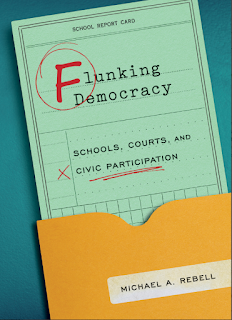Let's Talk About the "Required" Constitution Test
by Mary Ellen Daneels, Lead Teacher Mentor As I have traveled around the state of Illinois to support implementation of the high school civics requirement and pending middle school civics legislation , one of the biggest concerns I have heard is, “How will we have time to prepare students for the required Constitution test? I will never have time to cover all 200 questions on the test if I have to make time for student-centered inquiry, discussions, simulations, and service learning!” The Illinois State Board of Education states: American patriotism and the principles of representative government, as enunciated in the American Declaration of Independence, the Constitution of the United States of America and the Constitution of the State of Illinois, and the proper use and display of the American flag, shall be taught in all public schools and other educational institutions supported or maintained in whole or in part by public funds. No student shall receive a certificate...





Comments
Post a Comment